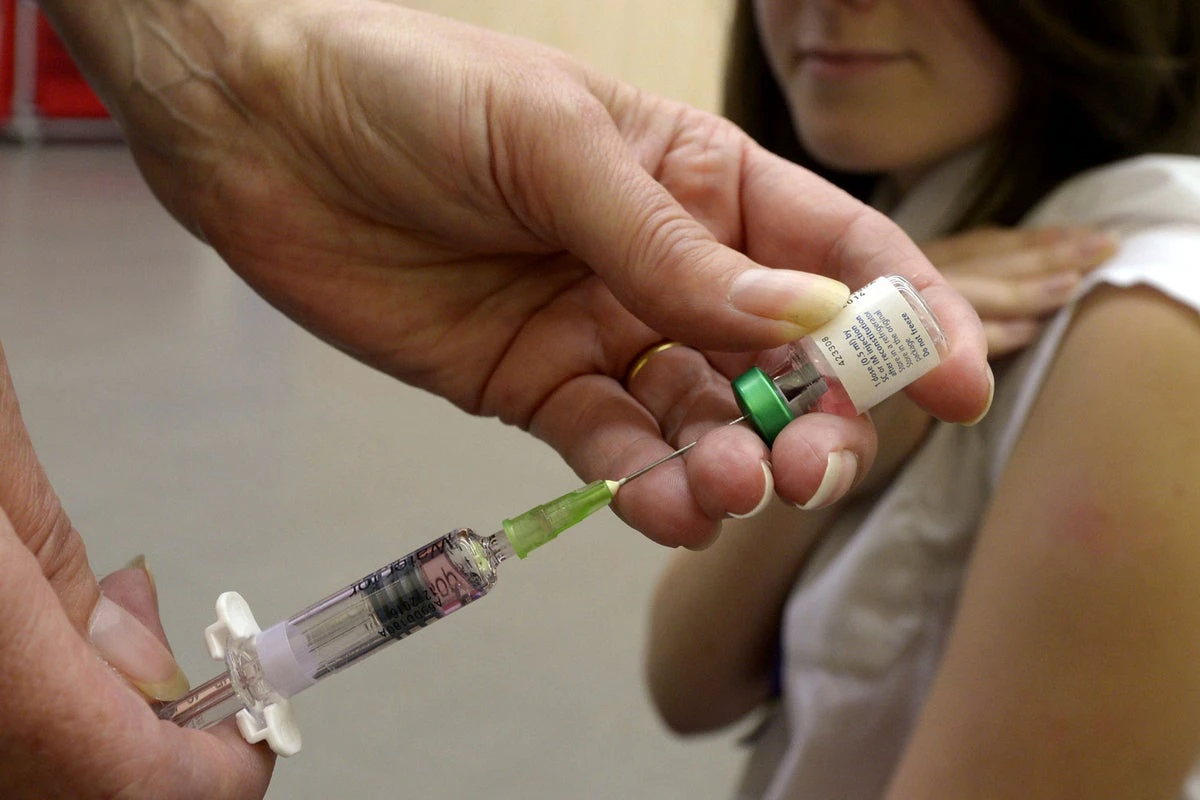Hundreds of people could die in measles outbreaks in the next 20 years unless vaccination rates are dramatically improved, a top disease expert has warned.
Unvaccinated babies aged under 12 months will make up a significant proportion of 480 avoidable deaths over the next two decades, according to modelling by Imperial College London.
Katherina Hauck, professor in health economics and deputy director of the university’s Jameel Institute, which led the research, suggested there could be two major outbreaks resulting in an additional 390,000 cases, based on a vaccination rate of around 90 per cent.
Current vaccination rates for the two doses required for protection against the highly contagious disease are around 85 per cent.
The warning comes after a child died and several others were left “seriously ill” at Liverpool’s Alder Hey Children’s Hospital after contracting measles, just days after health officials warned about rising cases due to unvaccinated patients.
The Royal College of Paediatrics and Child Health said declining UK vaccination rates were “extremely concerning” and urged governments across the UK to “act urgently” to reverse the trend.
The researchers estimated that hospitalisation and productivity losses because people are unable to work due to measles could amount to £290 million over 20 years.
The modelling is a worst-case scenario as it assumes no increased uptake in vaccinations and that health authorities take no action to improve rates in the event of an outbreak.
It also assumes 3 per cent of those who are unvaccinated are anti-vaxx. However, several officials told The Independent that the reasons for not being vaccinated vary, and a significant proportion of those who aren’t will be because parents don’t have access to it or haven’t prioritised it.
Since 1989, fewer than five people have died each year from measles, but experts warn that cases would rise if uptake doesn’t improve.
Professor Steve Turner, of the Royal College of Paediatrics and Child Health, said more must be done to improve vaccination rates.
He said: “It [measles] poses a significant risk to everyone, puts immense strain on already struggling health services, and also our economy. Paediatricians are particularly concerned about current measles outbreaks in the UK; measles can be safely prevented by vaccination.”
Uptake for the first dose of the Measles Mumps and Rubella (MMR) vaccine in children aged 2 years in England is 85.6 per cent, and uptake of the second dose at age 5 years is 85.5 per cent. This is below the 95 per cent target the World Health Organisation (WHO) says is necessary to achieve and maintain elimination.
The UK Health Security Agency, which prevents and responds to diseases, warned in 2023 that cases in London could result in an outbreak of between 40,000 and 160,000 cases if vaccination rates, which were at 74 per cent for both doses, did not improve.
The latest vaccination rates from January 2025 to March 2025 show that figure has fallen further to just 70 per cent in the capital.
In 2023-24, NHS England implemented a nationwide catch-up campaign for MMR vaccinations for those who had missed theirs, which delivered an extra 180,000 vaccinations.
Dr Vanessa Saliba said the UKHSA’s 2023 projections were still valid as vaccination rates remained a concern.
She said: “You can argue on the size of the outbreaks, we all agree you are going to see outbreaks. It’s not a surprise what we’re seeing at the moment, so it’s very important we work as a system to reverse that trend… If vaccine coverage is below 95 per cent, we will see cases, outbreaks, and potentially deaths.”
Dr Saliba said the UK has never met the WHO targets for measles, and so current outbreaks were not unexpected. The agency has brought forward the MMR jab schedule to allow children to get it at 18 months instead of at three years old in a bid to boost uptake.
UKHSA said projections within the Imperial College research should be treated with caution as they assume no action would be taken by health authorities following an outbreak, which would not happen.
Prof Hauck said poor vaccine uptake was due to a range of issues including, difficulties accessing primary care services that provide them, as well as misinformation. “Past medical accidents and poor communication of the benefits of vaccination have also caused vaccine hesitancy to spike in some areas, including parts of Britain,” she said.
She said interventions which can help include information campaigns, opening up access to vaccinations and building trust in authorities.
However, Professor Hauck suggested there should also be “discussions” around measures, such as mandated vaccinations, which are in place in other countries, and taxing the unvaccinated.
Azeem Majeed, a professor of primary care and public health at Imperial College, said the modelling “highlights the serious public health implications” of allowing vaccination coverage to remain below optimal levels.
“In a ‘no change’ scenario, with coverage at around 90 per cent, the population is vulnerable to large-scale outbreaks every few years, as the number of susceptible individuals builds up over time, and the main message to be taken is the need for sustained high vaccine coverage.”
He said that the precise number of cases would depend on the assumptions made, and the government and NHS responses to outbreaks would reduce the total number of infections and deaths.
